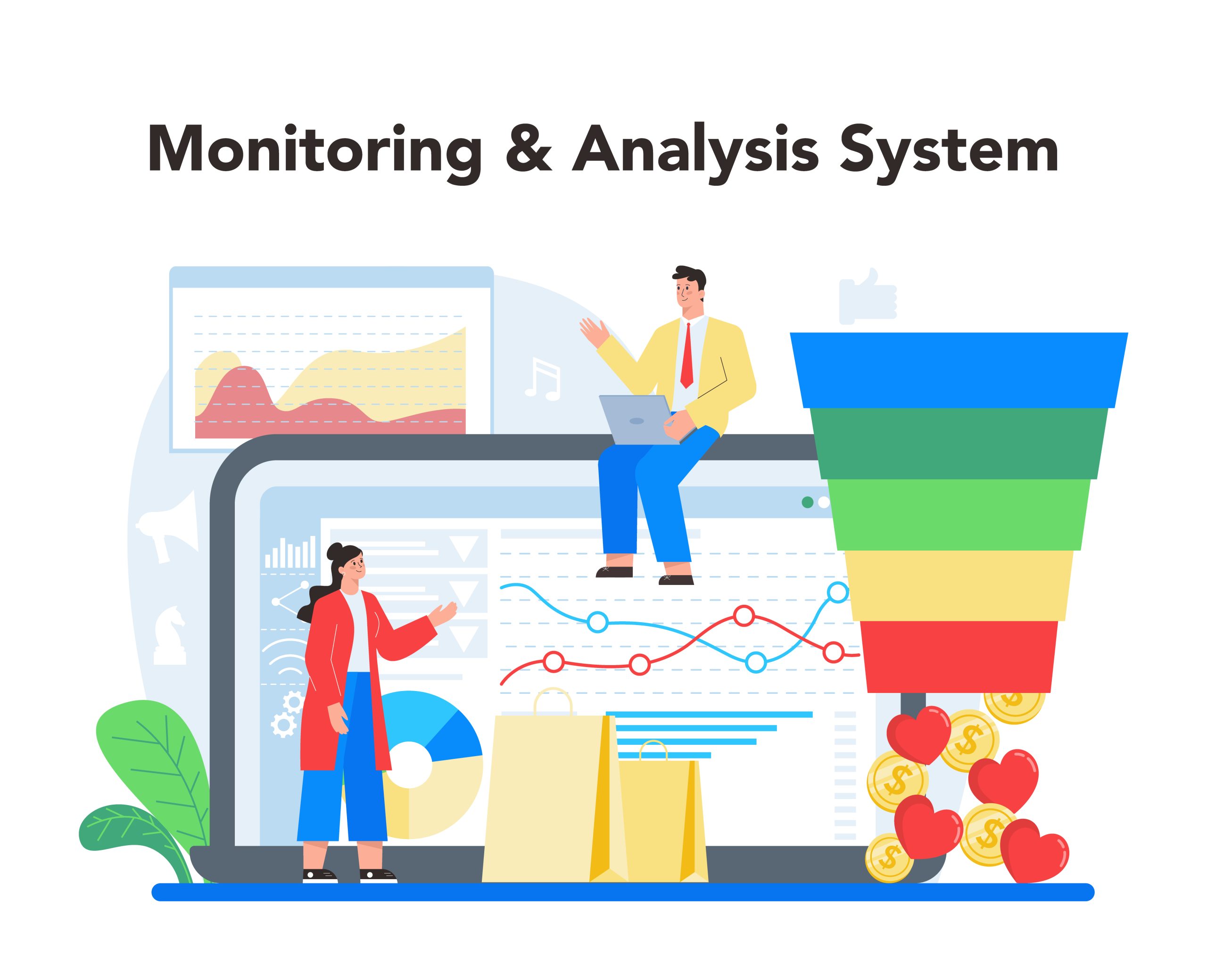
Are you ready to unlock the secrets to a successful content marketing strategy? Look no further! In this article, we will dive into the world of Search Engine Optimization (SEO) and reveal the key factors that can elevate your content to new heights. Whether you’re a seasoned marketer or just starting out, understanding these SEO principles will make all the difference in optimizing your content for search engines and driving organic traffic.
From keyword research to on-page optimization, we’ll guide you through each step of the process, providing valuable insights and strategies along the way. Together, we’ll decode the SEO puzzle and set you on a path to digital success.
In this fast-paced digital landscape, implementing effective SEO techniques is essential for any content marketer. By leveraging the power of SEO, you’ll not only improve your search engine rankings but also attract a highly targeted audience to your website.
So, if you’re ready to crack the code and take your content marketing to the next level, let’s dive in and discover the key SEO factors that will make your brand shine online!
The importance of SEO in content marketing
In today’s highly competitive digital landscape, having a solid understanding of SEO is crucial for any content marketer. SEO, which stands for Search Engine Optimization, refers to the process of optimizing your website and its content to rank higher in search engine results pages (SERPs). By implementing effective SEO techniques, you can improve your visibility, attract a highly targeted audience, and drive organic traffic to your website.
SEO goes hand in hand with content marketing. While great content is essential for engaging your audience, it’s equally important to ensure that your content is discoverable by search engines. By incorporating SEO best practices into your content marketing strategy, you can increase your chances of reaching your target audience and achieving your marketing goals.
Understanding search engine algorithms
To crack the SEO code, it’s important to have a basic understanding of how search engines work. Search engines like Google use complex algorithms to determine the relevance and quality of web pages. These algorithms take into account various factors such as keywords, user experience, backlinks, and more.
While search engine algorithms are constantly evolving, there are some fundamental principles that remain consistent. By understanding these principles, you can optimize your content to align with what search engines are looking for, ultimately improving your chances of ranking higher in search results.
Keyword research and analysis
Keyword research is a critical step in any SEO strategy. It involves identifying the keywords and phrases that your target audience is using to search for information related to your industry or business. By targeting these keywords in your content, you can increase your visibility in search results and attract relevant traffic to your website.
There are various tools and techniques available to help you conduct keyword research. From free tools like Google Keyword Planner to more advanced paid tools, you can gather valuable insights into search volume, competition, and related keywords. By choosing the right keywords and incorporating them strategically into your content, you can improve your chances of ranking higher in search results.
On-page optimization techniques
On-page optimization refers to the process of optimizing individual web pages to improve their visibility and rank higher in search results. This involves optimizing various elements on your web pages, including titles, headings, meta descriptions, URL structure, and content itself.
One of the key on-page optimization techniques is to create high-quality, original, and engaging content that provides value to your target audience. By incorporating relevant keywords naturally into your content, you can signal to search engines that your content is relevant to specific search queries.
In addition to content optimization, it’s important to pay attention to other on-page elements such as title tags, meta descriptions, and URL structure. These elements provide search engines with important information about your web pages and can impact your search rankings.
Off-page optimization strategies
Off-page optimization refers to actions taken outside of your website to improve its visibility and authority in the eyes of search engines. One of the most important off-page optimization strategies is link building. Backlinks, which are links from other websites to yours, play a crucial role in search engine rankings.
Search engines consider backlinks as votes of confidence. The more high-quality backlinks you have from reputable websites, the more authority and credibility your website will have in the eyes of search engines. However, it’s important to note that not all backlinks are created equal. Quality is more important than quantity, and it’s crucial to focus on earning backlinks from relevant and authoritative sources.
In addition to link building, other off-page optimization strategies include social media marketing, influencer outreach, and online PR. By leveraging these strategies, you can increase your brand’s visibility, attract relevant traffic, and improve your search engine rankings.
The role of backlinks in SEO
Backlinks are a fundamental aspect of SEO and play a crucial role in determining your website’s authority and credibility. When other websites link to your content, it signals to search engines that your content is valuable and trustworthy. As a result, search engines are more likely to rank your website higher in search results.
However, not all backlinks are created equal. Quality matters more than quantity. A backlink from a well-established and reputable website carries more weight than multiple backlinks from low-quality sites. It’s essential to focus on acquiring backlinks from authoritative sources within your industry.
There are various strategies you can employ to earn backlinks naturally. Creating high-quality and shareable content, reaching out to influencers or industry experts for collaboration, and guest posting on relevant websites are just a few examples. By building a strong backlink profile, you can improve your website’s search engine rankings and drive more organic traffic.
User experience and website design for SEO
User experience (UX) and website design play a crucial role in SEO. Search engines prioritize websites that offer a positive user experience and are easy to navigate. When users have a positive experience on your website, they are more likely to engage with your content, spend more time on your site, and share it with others.
To optimize your website for a better user experience, it’s important to focus on factors such as page load speed, mobile responsiveness, intuitive navigation, and clear call-to-actions. By providing users with a seamless and enjoyable browsing experience, you can increase the chances of them staying on your site longer and taking desired actions.
In addition to UX, website design also plays a role in SEO. A well-designed website not only looks visually appealing but also helps search engines understand the structure and hierarchy of your content. By organizing your content with clear headings, subheadings, and bullet points, you can improve readability and make it easier for search engines to crawl and index your web pages.
Measuring and analyzing SEO performance
To evaluate the success of your SEO efforts, it’s important to measure and analyze key performance metrics. By tracking these metrics, you can gain valuable insights into the effectiveness of your SEO strategies and make data-driven decisions to optimize your content marketing efforts.
Some key metrics to track include organic traffic, search rankings, bounce rate, time on page, and conversion rate. By monitoring these metrics regularly, you can identify areas for improvement and make necessary adjustments to your SEO strategy.
There are various tools available to help you measure and analyze SEO performance. Google Analytics, for example, provides valuable data on website traffic, user behavior, and conversion rates. SEO-specific tools like Moz and SEMrush offer more advanced features, including keyword research, competitor analysis, and backlink tracking.
SEO tools and resources for content marketing
In the ever-evolving world of SEO, staying up to date with the latest trends, techniques, and tools is essential. Fortunately, there are numerous resources available to help you stay informed and make the most of your SEO efforts.
Online blogs, forums, and communities dedicated to SEO provide a wealth of information and insights from industry experts. Websites like Moz, Search Engine Journal, and Backlinko offer comprehensive guides, tutorials, and case studies to help you navigate the world of SEO.
In addition to blogs and forums, SEO tools can greatly aid your content marketing efforts. From keyword research tools like Ahrefs and KeywordTool.io to on-page optimization tools like Yoast SEO, these tools provide valuable data and insights to improve your SEO strategy.
Conclusion: Implementing SEO for a successful content marketing strategy
In conclusion, SEO is a critical component of any successful content marketing strategy. By understanding and implementing key SEO factors, you can optimize your content for search engines, attract a highly targeted audience, and achieve your marketing goals.
From conducting keyword research to optimizing your web pages, building quality backlinks, and providing a seamless user experience, each step of the SEO process plays a crucial role in improving your search engine rankings.
By staying informed with the latest SEO trends, utilizing the right tools, and continuously measuring and analyzing your SEO performance, you can stay ahead of the competition and make data-driven decisions to enhance your content marketing strategy.
So, are you ready to crack the code and take your content marketing to the next level? By incorporating these key SEO factors into your strategy, you’ll be well on your way to boosting your online presence, attracting more organic traffic, and achieving digital success.




